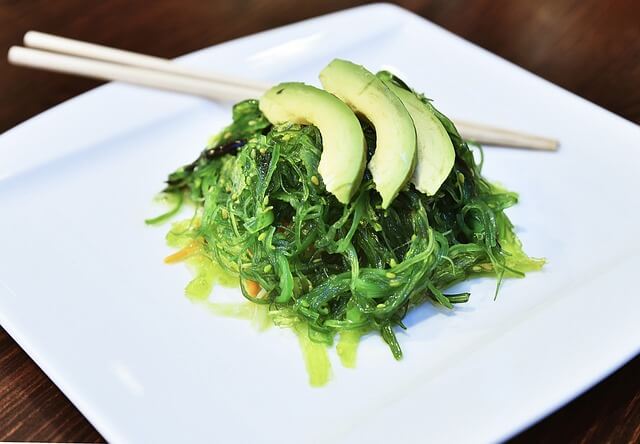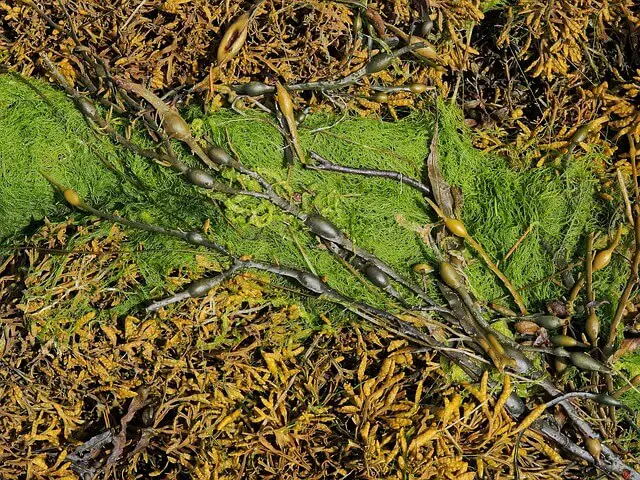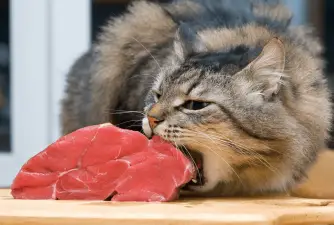Should You Add Seaweed To Your Cat's Nutrition?
04.01.2023.
Yes! Seaweed is not toxic to cats, and they can be given seaweed but, of course, in moderation. If given safely and in proper amounts, seaweed can be an excellent addition to your cat’s regular diet. Seaweed can also help your cat with stomach and/or digestion troubles.
Benefits of seaweed for cats
Seaweed is full of different nutrients, including vitamins, minerals, and compounds that can do wonders for your cat’s health and looks. One of the greatest benefits of consuming seaweed is improved coat sheen and skin health. Seaweed helps (more precisely, omega-3 fatty acids found in seaweed) make your cat’s coat shiny and silky. As for health benefits – seaweed is great for maintaining great gut health. Also, seaweed reduces skin dryness and irritation.
Seaweed contains prebiotics that helps good bacteria found in a cat’s gastrointestinal tract enough nourishment to fight off and control bad bacteria. Seaweed is also easy to digest, so it can help regulate a cat’s digestion. It is also high in antioxidants and helps boost the immune system in cats and promote their heart health.
Seaweed also helps with the lack of fiber in cats, and these fibers have a very useful anti-inflammatory effect and anti-tumor traits. It has been proven that consuming seaweed helps inhibit cancer cells from multiplying and prevents metastasis from forming.
Another great thing about seaweed is that it is widely used to clean teeth and maintain a cat’s dental health by preventing oral plaque from forming and fighting bad breath.

Types of seaweed safe for cats?
Thankfully, there are several great seaweed choices for your cat. However, some of the most prominent are Acadian Sea Kelp (brown algae found in cold water). This type of seaweed is full of vitamins, nutrients, magnesium, calcium, protein, etc.
Another great one is Irish Moss, a great booster for your cat’s kidney and bladder health.
Nori is one of the most widespread types of seaweed and is also high in minerals and vitamins, such as vitamin A, vitamin B, and vitamin C. Nori also contains taurine – an amino acid great for your cat’s heart health. It is often used in Japanese cuisine. Nori helps metabolism and digestion and firms up loose bowel movements.
Dulse, Wakame, or Kombu are also great choices. Dulce is easy on the stomach and rich in vitamins. Wakame is awesome for cats having obesity problems because it is great for burning fat.
Sea Lettuce has a lot of iron and cesium and is great for a cat’s digestion. The great thing about this seaweed is that it has an oyster flavor, which is pretty much irresistible for cats.
Blue Green Algae is great for improving a cat’s brain activity.
Can seaweed be bad for cats?
Generally, there is no downside to feeding your cat seaweed. Seaweed is considered a super-food because of its benefits that are of great value for the cat’s organism health, including coat and skin health. However, it is a good idea to consult with your veterinarian on the type of seaweed your cat will benefit the most from and, of course, on dosage. Moderation is the key when deciding how much seaweed you will feed your cat.

How to offer seaweed to your cat?
The most important thing is to choose human-grade, unflavored, plain seaweed. Closely read the label on the package, check the ingredients, and avoid seaweed that is prepared with ingredients such as garlic, salt, and other spices and preservatives.
Seaweed prepared with garlic or salt might cause vomiting, diarrhea, and other similar issues because these are the spices cat is not supposed to eat. The same rule applies to seaweed chips. The preservatives these chips are made with are not good for your cat’s health.
Before giving the seaweed to your cat:
- Chop it into small pieces and mix it with regular cat food.
- Remember, moderation is the key.
- Consider seaweed as a supplement for your cat – regular cat food still needs to be the main part of your cat’s diet.
You can feed your cat with fresh, dry, cooked, or roasted seaweed. The dosage of seaweed depends on your cat’s size, age, needs, and medical and health history. The answer to the question of dosage is the question your veterinarian will be best able to answer.
World Cat Finder Team







Share